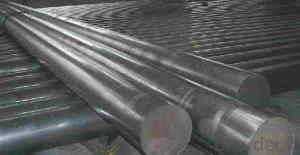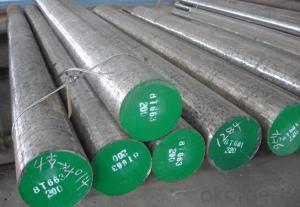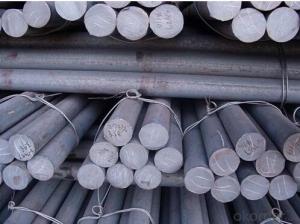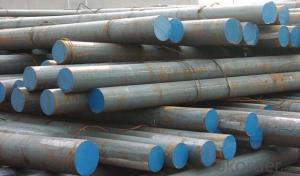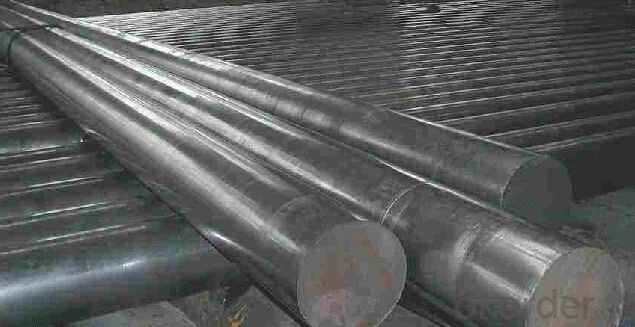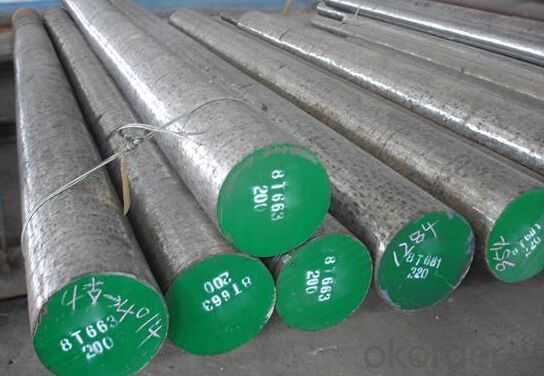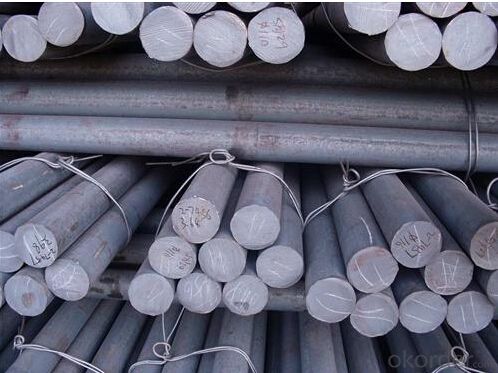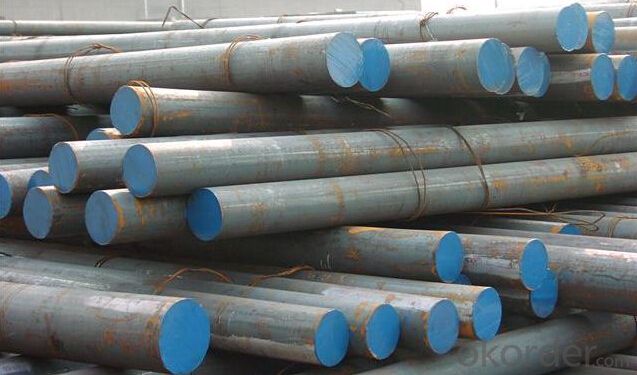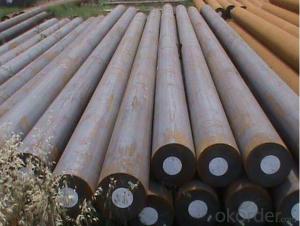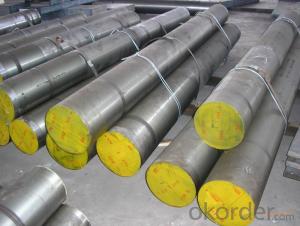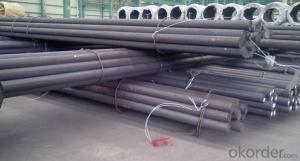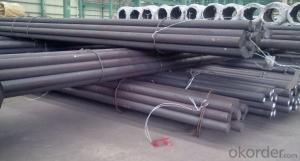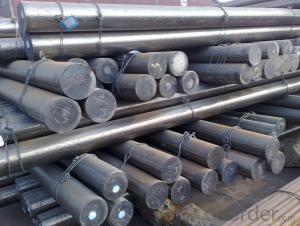Grade SAE52100 CNBM Bearing Steel Round Bar
- Loading Port:
- Shanghai
- Payment Terms:
- TT OR LC
- Min Order Qty:
- 25 m.t
- Supply Capability:
- 10000 m.t/month
OKorder Service Pledge
OKorder Financial Service
You Might Also Like
Specification
Specification of Round Bar
1, Dimention of 52100 Alloy Steel | ||||||||
| Round bar | Diameter(mm) | Length (mm) | ||||||
| 20~800 | 3000~9000 | |||||||
| Plate | Thickness(mm) | Width (mm) | Length (mm) | |||||
| Max:800 | Max:2200 | Max:9000 | ||||||
| The specification can be customized. | ||||||||
| 2, Chemical Compositions (%) | ||||||||
| Grade | C | Si | Mn | P | S | Cr | Mo | Ni |
| GCr15 | 0.95-1.05 | 0.15-0.35 | 0.25-0.45 | ≤0.025 | ≤0.025 | 1.40-1.65 | ≤0.10 | ≤0.30 |
| E52100 | 0.93-1.05 | 0.15-0.35 | 0.25-0.45 | ≤0.025 | ≤0.015 | 1.35-1.60 | ≤0.10 | ≤0.25 |
| SUJ2 | 0.95-1.10 | 0.15-0.35 | ≤0.50 | ≤0.025 | ≤0.025 | 1.30-1.60 | ≤0.08 | ≤0.25 |
| 100Cr6 | 0.93-1.05 | 0.15-0.35 | 0.25-0.45 | ≤0.025 | ≤0.015 | 1.35-1.60 | 0.1 | |
| 3, Features of 52100 alloy steel | ||||||||
| 1, High carbon alloy steel | ||||||||
| 2, High degree of hardness | ||||||||
| 3, Good compressive strength and abrasion resistance | ||||||||
| 4, Typical Applications | ||||||||
| 1, Taps, gauges, swaging dies, ejector pins | ||||||||
| 2, Ball and roller bearings | ||||||||
| 3, Machine parts and for press tools | ||||||||
Our Featured Products
Alloy steel: Combination of steel / Bearing steel// Spring steel/ Cr- mo steel
GB 20Cr/ 40Cr / 42CrMo / 35CrMo/ 20CrMn/GCr15/30CrMnTi…
ASTM 5120 /5140 / 4140/ 4135/ 5152/52100…
JIS SCr420H/ SCr440/ SCM3/ SUP9/SUJ2…
Carbon steel: Carbon tool steel /Carbon Structural Steel
GB 20/ 35 /45/…
ASTM 1020/ 1030/1045…
JIS S20C/ S30C / S45C…
Usage and Applications of Round Bar
1. Chinese standard steel bar is often used where large amounts of steel need to be formed, for example as structural steel.
2. And we can use this kind of product on the performance of the mechanical parts if the demand is not very high.
3. Steel round bar is used in construction and a large number of architectural and engineering structures.
Packaging & Delivery of Round Bar
Packaging Detail: All goods are packed in bundle with steel strips and shipped by break bulk vessel or container (depend on target market and different ports)
Delivery Detail: 15~45 days
Trade terms: FOB, CFR, CIF
MOQ: 25 metric tons per specification; we can negotiate the quantity if the specification is normal or we have stock of one specification.
Weight: Theprice invoicing on theoretical weight basis or actual weight basis depends on customer’s request.
Shipment: The shipment of bulk break or container is depends on customer’s request and the situation of the port of destination.
Documents given: Full set of original clean on board bill of lading; Original signed commercial invoice; Original packing list; Policy of insurance; Certificate of origin and what the target market needs.
Production Flow of Round Bar
1. The common processes are preheated forging quenching, dual refinement solution process, cooling quenching and isothermal quenching. We use heat treatment for dual refinement solution process.
2. Material prepare (billet) — heat up — rough rolling — precision rolling — cooling — packing — storage and transportation
FAQ:
Q1: Why buy Materials & Equipment from OKorder.com?
A1: All products offered byOKorder.com are carefully selected from China's most reliable manufacturing enterprises. Through its ISO certifications, OKorder.com adheres to the highest standards and a commitment to supply chain safety and customer satisfaction.
Q2: How do we guarantee the quality of our products?
A2: We have established an advanced quality management system which conducts strict quality tests at every step, from raw materials to the final product. At the same time, we provide extensive follow-up service assurances as required.
Q3: How soon can we receive the product after purchase?
A3: Within three days of placing an order, we will begin production. The specific shipping date is dependent upon international and government factors, but is typically 7 to 10 workdays.
Q4: What makes stainless steel stainless?
A4: Stainless steel must contain at least 10.5 % chromium. It is this element that reacts with the oxygen in the air to form a complex chrome-oxide surface layer that is invisible but strong enough to prevent further oxygen from "staining" (rusting) the surface. Higher levels of chromium and the addition of other alloying elements such as nickel and molybdenum enhance this surface layer and improve the corrosion resistance of the stainless material.
Q5: Can stainless steel rust?
A5: Stainless does not "rust" as you think of regular steel rusting with a red oxide on the surface that flakes off. If you see red rust it is probably due to some iron particles that have contaminated the surface of the stainless steel and it is these iron particles that are rusting. Look at the source of the rusting and see if you can remove it from the surface.
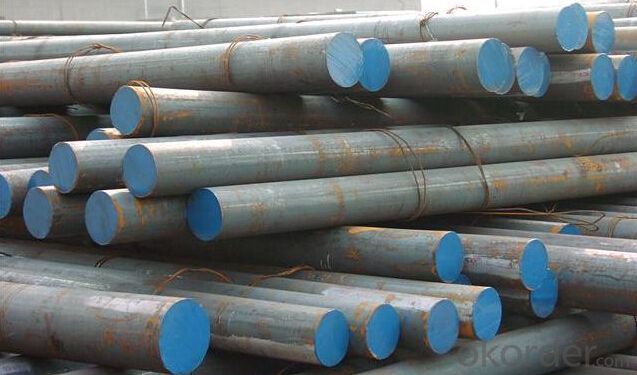
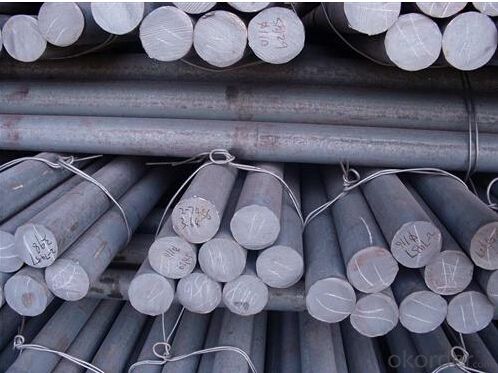
- Q: How does special steel perform in terms of electrical resistivity?
- Special steel typically has relatively high electrical resistivity compared to other materials. This means that it does not conduct electricity as efficiently as materials with lower resistivity.
- Q: How does stainless steel contribute to the production of medical implants?
- Stainless steel contributes to the production of medical implants primarily due to its exceptional properties such as corrosion resistance, high strength, biocompatibility, and ease of sterilization. These qualities make stainless steel an ideal material for manufacturing various medical implants like joint replacements, bone plates, screws, and dental implants.
- Q: What are the main advantages of using special steel in the aerospace industry?
- The main advantages of using special steel in the aerospace industry are its high strength-to-weight ratio, excellent corrosion resistance, and superior heat resistance. Special steel allows aircraft to be lighter, yet still maintain the necessary structural integrity and safety standards. Its resistance to corrosion ensures the longevity of the aircraft, even in harsh environments. Additionally, special steel's ability to withstand high temperatures makes it suitable for use in jet engines and other crucial components, ensuring optimum performance and safety in aerospace applications.
- Q: How does special steel perform in high-velocity impact conditions?
- Special steel is specifically designed to perform well in high-velocity impact conditions. It possesses exceptional strength and toughness, allowing it to withstand the intense forces exerted during such impacts. The unique composition and heat treatment of special steel enable it to absorb and distribute the energy generated by the impact, minimizing deformation and potential damage. Overall, special steel demonstrates excellent performance and reliability in high-velocity impact conditions.
- Q: How is special steel used in the production of conveyor belts?
- Special steel is used in the production of conveyor belts to enhance their durability, strength, and overall performance. Conveyor belts are commonly used in industries such as mining, manufacturing, food processing, and logistics to transport materials and goods. These belts are subjected to various demanding conditions, including heavy loads, high temperatures, and abrasive materials. Special steel alloys, such as stainless steel or heat-resistant steel, are used in specific parts of the conveyor belt to ensure its longevity and reliability. For example, stainless steel is often used in the wire mesh belts to prevent corrosion and rust, especially when the conveyor belt is exposed to moisture or chemicals. This helps to maintain the smooth and efficient movement of materials without contamination. Furthermore, special steel is employed in the manufacturing of belt fasteners, hinges, and other connecting components. These parts need to withstand significant tension, heat, and wear, and standard steel may not provide the necessary strength and durability. Special steel alloys can offer superior strength, resistance to high temperatures, and improved wear resistance, ensuring that the conveyor belt can function reliably even under demanding conditions. Moreover, in some applications where the conveyor belt is exposed to extreme temperatures, such as in steel mills or foundries, special heat-resistant steel is used. This steel can withstand the intense heat without deforming or losing its strength. It allows the conveyor belt to continue operating safely and efficiently in such extreme environments. In summary, special steel is essential in the production of conveyor belts as it enhances their durability, strength, and ability to withstand demanding conditions. Its use in wire mesh belts, fasteners, hinges, and heat-resistant components ensures the longevity and reliability of conveyor belts in various industries.
- Q: How does special steel contribute to the aerospace fuel efficiency?
- Special steel contributes to aerospace fuel efficiency in several ways. Firstly, special steel alloys are used in the manufacturing of aircraft engines, which are designed to be lightweight and durable. The use of these alloys helps reduce the overall weight of the engine, resulting in less fuel consumption during flight. Additionally, special steel is also used in the construction of various aircraft components, such as wings and landing gear. By utilizing stronger and lighter steel materials, the overall weight of the aircraft is reduced, leading to improved fuel efficiency. Moreover, special steel's high temperature resistance properties enable it to withstand the extreme heat generated by engines, allowing for more efficient combustion and reduced energy loss. Overall, the use of special steel in aerospace applications significantly contributes to fuel efficiency by reducing weight, improving durability, and optimizing engine performance.
- Q: What are the different galvanizing techniques used for special steel?
- There are several galvanizing techniques commonly used for special steel, including hot-dip galvanizing, electro-galvanizing, and mechanical galvanizing. Each technique has its own advantages and is suitable for specific applications.
- Q: How does special steel contribute to the aerospace material recyclability?
- Special steel contributes to aerospace material recyclability in several ways. First, special steel is known for its high strength-to-weight ratio, making it a preferred choice for critical components in aircraft. This means that when these components reach the end of their service life, they can be recycled and repurposed without compromising the safety and structural integrity of the aircraft. Additionally, special steel is highly durable and resistant to corrosion, making it suitable for long-term use in harsh aerospace environments. This durability ensures that the steel can be recycled multiple times without significant degradation in its mechanical properties, further enhancing the recyclability of aerospace materials. Moreover, the metallurgical properties of special steel allow for efficient recycling processes. Steel is a highly recyclable material, and special steel alloys can be easily separated from other materials during the recycling process. This ease of separation and the high value of steel in the recycling market make special steel an economically viable choice for aerospace manufacturers and recyclers. In summary, special steel's strength, durability, corrosion resistance, and ease of recycling make it a valuable contributor to the recyclability of aerospace materials. By using special steel in aircraft components, the aerospace industry can enhance sustainability efforts and reduce the environmental impact of its operations.
- Q: How does the demand for special steel vary across different regions?
- The demand for special steel can vary significantly across different regions due to several factors. One of the key drivers of demand variation is the level of industrialization in a particular region. Developed regions with a strong manufacturing sector, such as North America, Europe, and East Asia, tend to have a higher demand for special steel as they rely heavily on it for various industrial applications. Another factor that influences demand variation is the presence of specific industries or sectors within a region. For example, regions with a significant automotive or aerospace industry will have a higher demand for special steel as these sectors require high-performance materials for the production of vehicles or aircraft. Moreover, the construction industry plays a crucial role in determining the demand for special steel. Regions experiencing rapid urbanization and infrastructure development, like Southeast Asia, the Middle East, and parts of Africa, have an increased demand for special steel for the construction of buildings, bridges, and other infrastructure projects. Additionally, the availability of raw materials and production capabilities within a region can affect the demand for special steel. Regions with ample access to iron ore, coal, and other necessary resources for steel production may have a higher demand for special steel as they can efficiently produce it. Lastly, economic trends and government policies also impact the demand for special steel. Regions with stable economic growth and favorable policies for industries that use special steel will likely experience higher demand. Conversely, regions facing economic downturns or restrictive trade policies may witness a decline in demand. In conclusion, the demand for special steel varies across different regions due to factors such as industrialization levels, specific industries present, construction activities, availability of raw materials, and economic trends. Understanding these variations is essential for steel manufacturers and suppliers to effectively target and cater to the diverse needs of different regions.
- Q: How does special steel contribute to the manufacturing of cutting blades?
- Special steel plays a crucial role in the manufacturing of cutting blades. Cutting blades are required to have exceptional strength, durability, and sharpness to efficiently perform their function. Special steel, also known as tool steel, possesses unique properties that make it an ideal material for manufacturing cutting blades. Firstly, special steel has excellent hardness, which enables cutting blades to maintain their sharpness for an extended period. Cutting blades made from special steel can withstand the wear and tear that occurs during cutting operations. This hardness allows the blades to retain their cutting edge, resulting in a longer lifespan and improved cutting performance. Moreover, special steel offers exceptional toughness, which is crucial for cutting blades. During cutting operations, blades are subjected to high impact and stress. Special steel's toughness helps absorb these forces and prevents the blades from breaking or chipping. This ensures that the cutting blades can withstand demanding cutting tasks without compromising their performance. Additionally, special steel provides excellent corrosion resistance. Cutting blades often come into contact with various materials, including moisture and chemicals. The corrosion resistance of special steel prevents the blades from rusting or corroding, ensuring their longevity and reducing the need for frequent replacements. Furthermore, special steel offers good machinability, making it easier to shape and form into the desired blade design. This enhances the manufacturing process by enabling the production of cutting blades with complex shapes and intricate features. The machinability of special steel allows manufacturers to create blades with precise cutting edges and optimal geometries, resulting in superior cutting performance. In conclusion, special steel contributes significantly to the manufacturing of cutting blades by providing hardness, toughness, corrosion resistance, and good machinability. These properties ensure that cutting blades made from special steel are long-lasting, durable, and capable of delivering exceptional cutting performance in various applications.
Send your message to us
Grade SAE52100 CNBM Bearing Steel Round Bar
- Loading Port:
- Shanghai
- Payment Terms:
- TT OR LC
- Min Order Qty:
- 25 m.t
- Supply Capability:
- 10000 m.t/month
OKorder Service Pledge
OKorder Financial Service
Similar products
Hot products
Hot Searches
Related keywords
